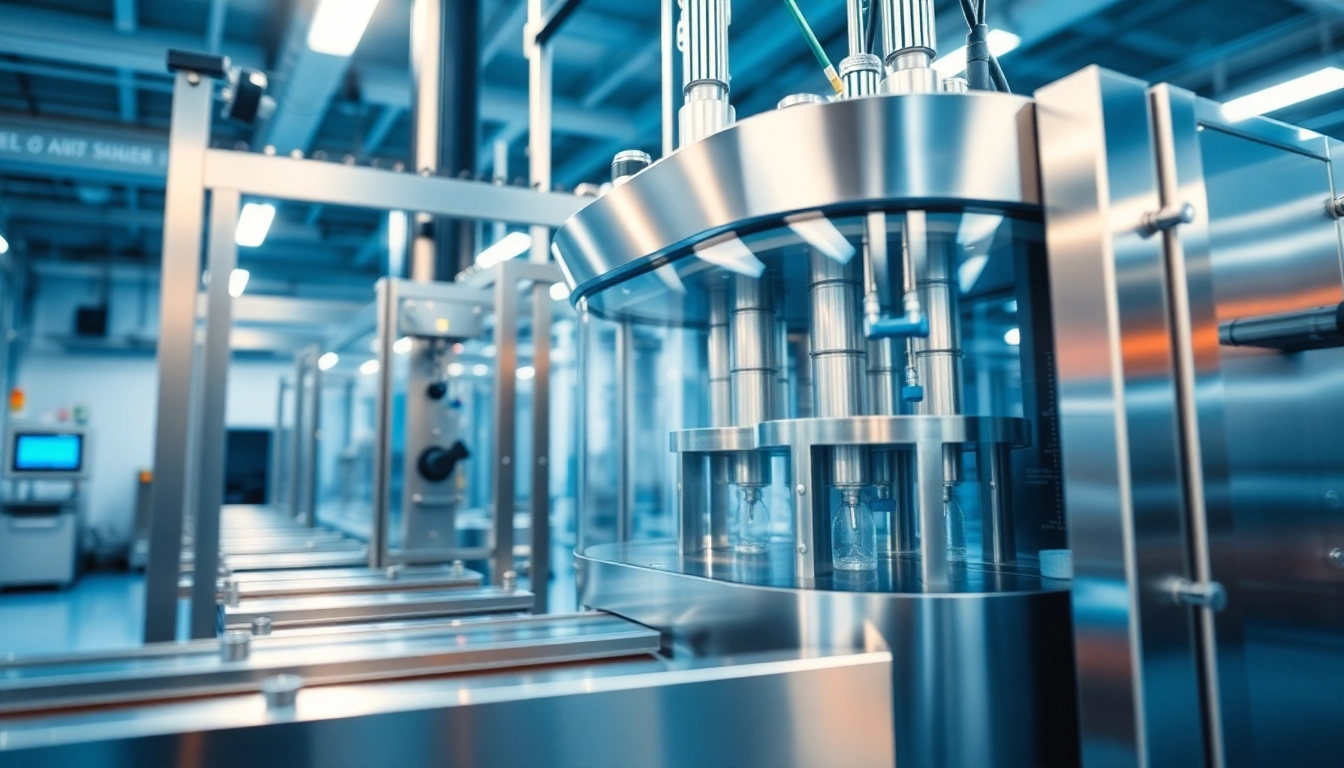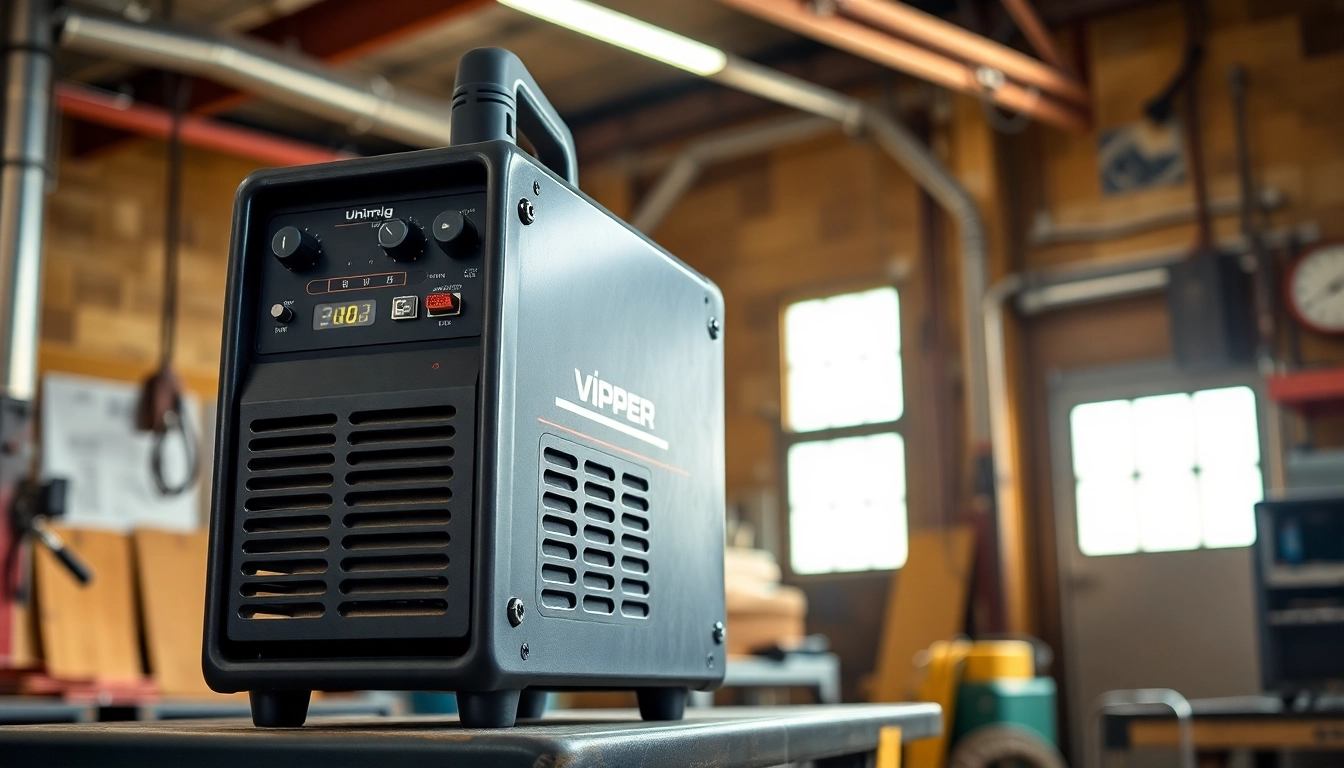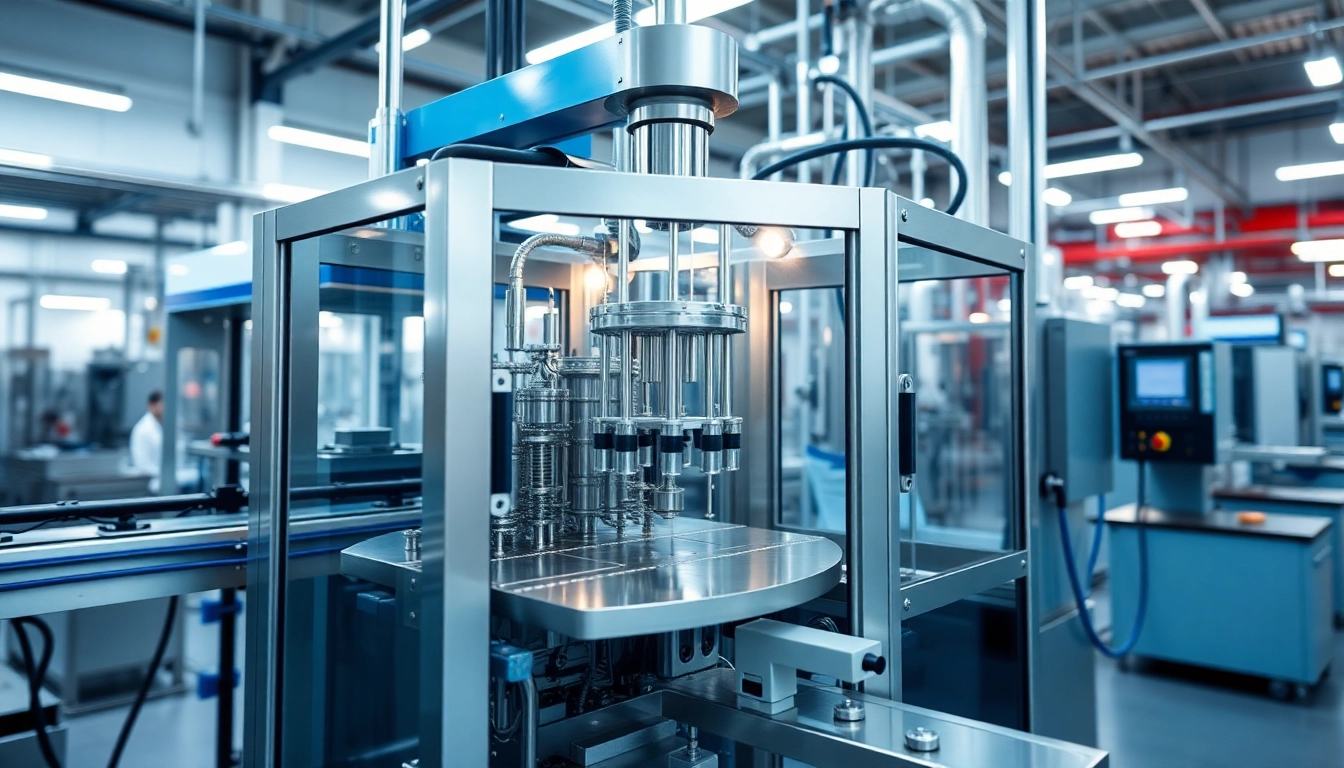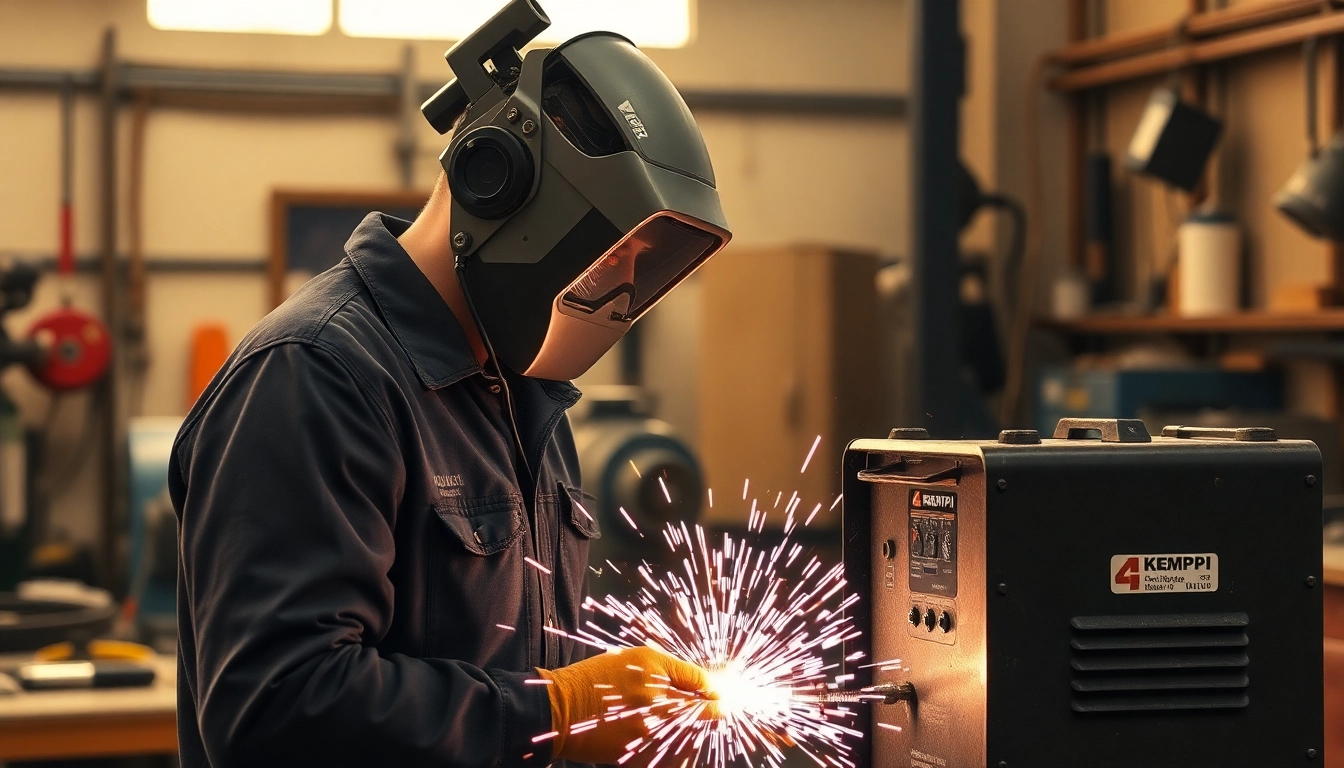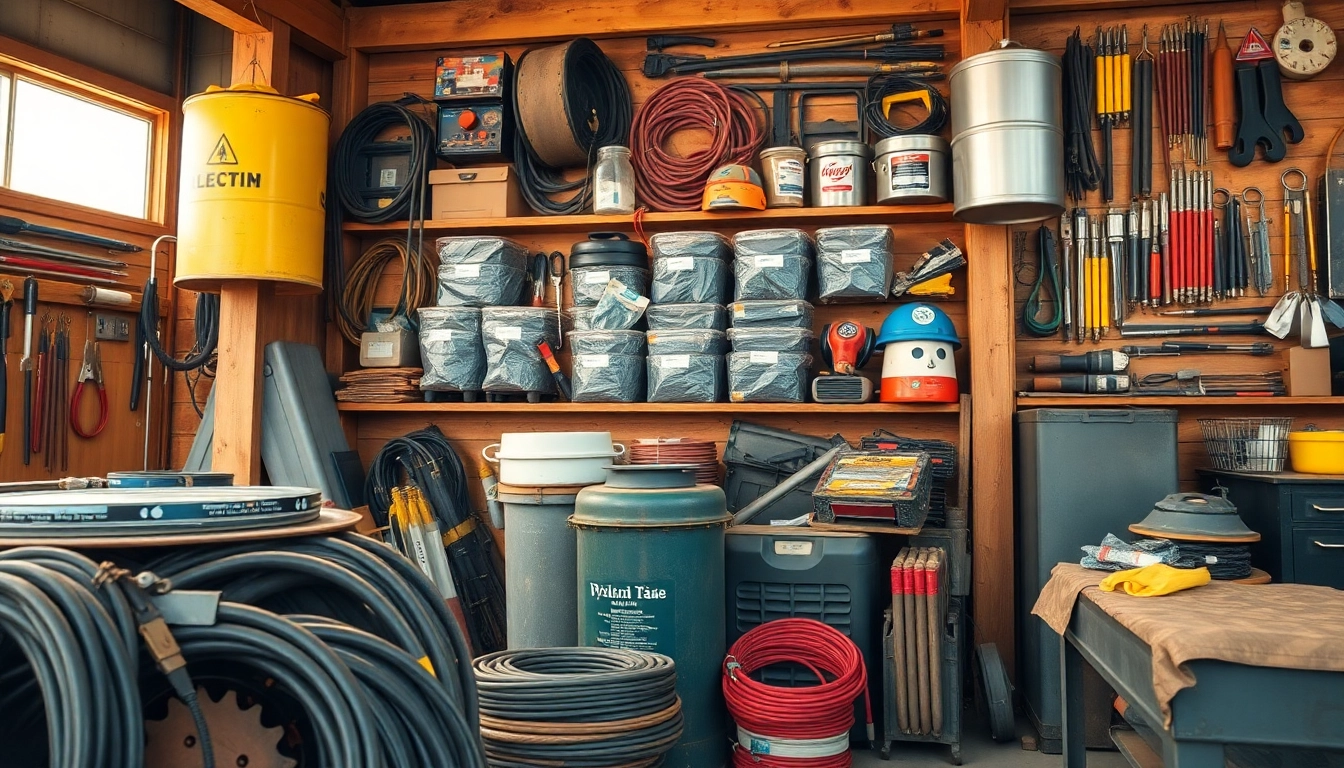Understanding the Role of a Filling Machine Supplier
In the fast-paced world of manufacturing and packaging, the demand for efficient and reliable filling solutions is paramount. A filling machine supplier plays a critical role in ensuring that industries can meet production requirements without compromising quality or efficiency. These suppliers specialize in providing machinery that helps businesses manage the automatic and precise filling of products across various sectors. This article examines the nature of filling machines, their importance, the types offered by suppliers, how to choose the right supplier, efficient machine integration, and upcoming trends in filling technology.
What is a Filling Machine?
A filling machine is a specialized piece of equipment designed to fill containers, such as bottles, jars, pouches, or cans, with a specific volume of liquid or viscous products. This process includes precision filling to avoid underfilling or overfilling, ensuring that each package is filled consistently. Filling machines can operate on automated or semi-automated levels, tailored to the needs of different production environments.
Importance of Quality in Filling Machines
The efficiency and quality of a filling machine significantly impact the overall production line’s effectiveness. High-quality filling machines ensure:
- Consistency: Automated filling minimizes human error, promoting uniformity across batches.
- Speed: Quality machines fill containers faster, increasing throughput and reducing bottlenecks in production.
- Cost-Effectiveness: Reliable equipment often means lower maintenance costs and longer operational lifespan.
- Compliance: High-quality machines adhere to industry standards and regulations ensuring product safety.
Common Industries for Filling Machine Suppliers
Filling machine suppliers serve a broad array of sectors. Here are some of the most common:
- Food and Beverage: Includes liquids like juices, sauces, oils, and carbonated drinks.
- Pharmaceutical: For accurate filling of liquid medicines and vaccines.
- Cosmetics: Filling creams, lotions, and other personal care products.
- Chemicals: From agricultural chemicals to cleaning products, filling machines cater to many liquid distributions.
Types of Filling Machines Offered by Suppliers
Filling machine suppliers provide a variety of equipment designed to suit different products and packaging requirements. Understanding the types of machines available is vital for selecting the right one for your operational needs.
Piston Filling Machines
Piston filling machines are mechanized devices that dispense a specific volume of liquid through pistons. They are ideal for highly viscous products like creams or gels and are recognized for their precision and efficiency. These machines excel in accommodating various container sizes and shapes, making them versatile in usage.
Gravity Filling Machines
Gravity filling machines operate on a gravitational force principle, allowing products to flow from a tank through filling nozzles into containers. They are mostly utilized for non-viscous liquids and are favored for their simplicity and lower operational costs. However, their filling accuracy can be affected by product viscosity, requiring careful selection for specific applications.
Vacuum Filling Machines
Vacuum filling machines are essential for preventing spills and ensuring precise fills, especially for sensitive fluids. They utilize a vacuum to draw product into the container, making them perfectly suited for carbonated beverages or reactive liquids. Their technology helps preserve product integrity while ensuring clean operation.
Choosing the Right Filling Machine Supplier
With numerous suppliers available, selecting the right filling machine supplier is crucial for your success. Making an informed decision involves careful consideration of several factors.
Evaluating Supplier Experience and Reputation
Consider a supplier’s industry experience and reputation. Established suppliers often have proven track records in delivering high-quality machinery and customer service. Look for testimonials, certifications, and case studies that validate their competence in your specific industry.
Determining Your Operational Needs
Understanding your production requirements is essential. Determine the following:
- Product Type: Is it liquid, paste, or powder?
- Container Type: What are the dimensions and weight?
- Production Volume: How many units do you need to fill daily or weekly?
- Future Scalability: Will your needs change soon?
Comparing Supplier Offerings and Technologies
Research the different machines offered by various suppliers. Consider automation levels, flexibility for different products, compatibility with existing systems, and maintenance requirements. A comparative analysis can help identify which supplier’s technologies align best with your operational needs.
Integrating Filling Machines into Your Production Line
Once the right filling machine has been selected, integrating it into the production line is pivotal for maximizing its functionality. Successful integration involves several key steps.
Planning for Installation and Setup
Plan the installation process meticulously to minimize downtime. This includes scheduling the installation during off-peak hours or planned maintenance breaks. Ensure that your production area is prepared, including proper electrical and mechanical setups.
Employee Training on New Equipment
Training your workforce is critical to maximizing the performance of new machinery. Provide comprehensive training sessions on operating the new filling machine, troubleshooting common issues, and conducting routine maintenance. Falling short in this area can lead to errors and inefficiencies that compromise production quality.
Maintenance Tips for Longevity
Regular maintenance is essential to ensure optimal functioning of filling machines. Schedule routine checks and servicing to identify and rectify issues before they escalate. Consider maintaining a log of operations and maintenance activities to monitor equipment performance over time.
Future Trends in Filling Machine Technology
As technology continues to advance, several trends in filling machines are emerging. Keeping pace with these developments is crucial for businesses aiming for efficiency and competitiveness in the market.
Automation and Smart Technology Advances
The integration of automation and smart technologies into filling machines is a game-changer. Smart machines equipped with sensors can monitor operations in real time, adjust parameters based on performance, and even alert operators to maintenance needs. These advancements lead to increased efficiency, reduced waste, and improved productivity.
Eco-Friendly and Sustainable Practices
As sustainability becomes a priority across industries, filling machine suppliers are developing solutions that minimize energy consumption, waste generation, and environmental impact. Machines that utilize biodegradable or recyclable materials can align your operations with eco-friendly practices, attracting customers who value sustainability.
Customization Trends in Filling Equipment
There is an increasing demand for customizable filling machines that can accommodate various products and packaging needs. Suppliers are now offering modular machines that allow businesses to easily upgrade components to meet evolving market demands without replacing entire systems. This flexibility supports long-term investment strategies and adaptability to changing product lines.
